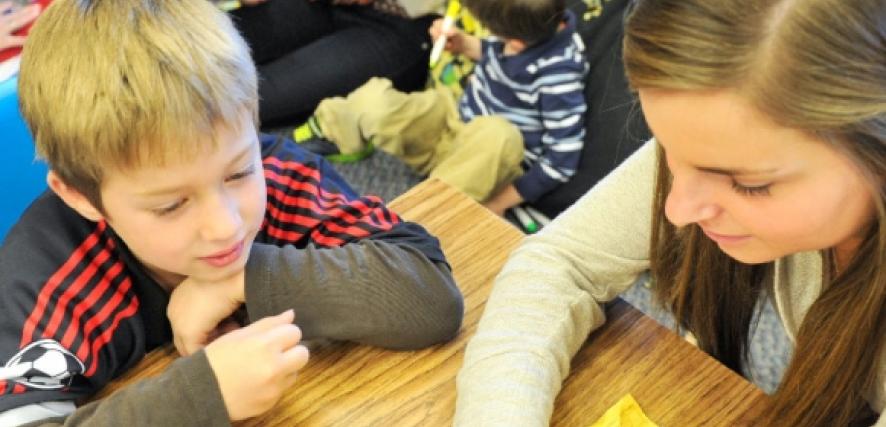Assistant Professor in the Department of Education Dr. Sara Kersten-Parrish is changing the narrative of managing a disability in the classroom while preparing the early education teachers of tomorrow. Dr. Parrish is deaf, which was not an issue for her or her pupils until the Coronavirus Pandemic drastically changed the way she had to engage her students.
Dr. Parrish contracted Spinal Meningitis when she was 11-months old; the disease caused her to lose the majority of her hearing. As a result, she strengthened her ability to bridge the communication gap through other methods. She honed her ability to read lips and identify facial cues, helping her navigate the hearing world. Through determination and discipline, Dr. Parrish was able to communicate with people beyond her disability.
In March of last year, pandemic protocols severely reduced Dr. Parrish’s ability to connect with people in both public and private spheres. Mask mandates impaired her ability to read lips and identify social cues - radically changing the way she communicates with the hearing world. For the first time, she had to rely on her husband to interact with others in the community. “To depend on someone else to communicate was overwhelming and diminishing.” recalls Dr. Parrish.
